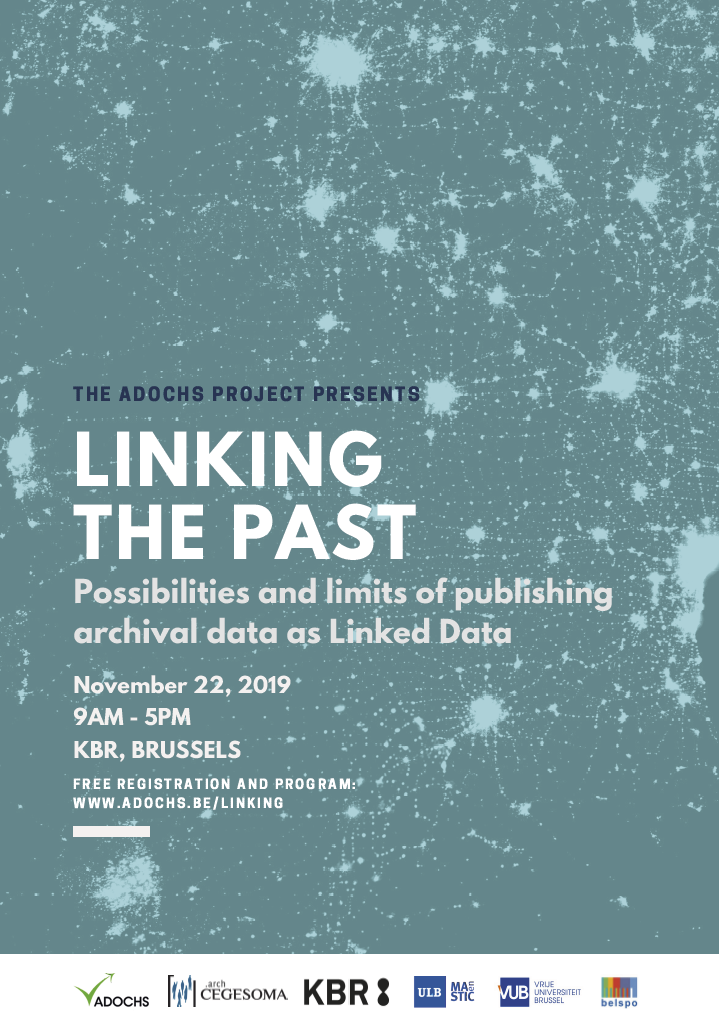Heute erhielten wir die Nachricht, dass Bundesanwalt a.D. Manfred Bruns im Alter von 85 Jahren verst...
Die Ehe für alle – Eine rechtsgeschichtliche Untersuchung zur Gleichstellung homosexueller Menschen in der Bundesrepublik
von Lennard Gottman Als am 28. Juni 2017 der Bundestag das Gesetz für die Ehe für alle bes...
Gerda Henkel Fellowship in Digital History at GHI Washington & Roy Rosenzweig Center for History and New Media at the George Mason University
With the generous support of the Gerda Henkel Foundation, the German Historical Institute (GHI) and the Roy Rosenzweig Center for History and New Media at the George Mason University (RRCHNM) invite applications from postdoctoral scholars and advanced doctoral students based in Europe for a 12-month fellowship in digital history.
The fellowship will provide a unique opportunity for the recipient to work on his or her research project at RRCHNM, where she/he will be in residence for one year. We welcome applications from scholars who are seeking seed-funding in order to develop a thrilling idea into a new project and/or funding proposal as well as from scholars who wish to pursue fully-fledged research projects. While at the Center, the fellow will also have the opportunity to consult with the Center’s faculty and staff in order to develop the skills needed for his or her project, join teams working on projects in development at RRCHNM, and to sit in on graduate digital history classes at GMU. Depending upon qualifications and visa status, the fellow could teach or co-teach undergraduate courses involving digital history.
Starting at the beginning of the 2020 GMU fall semester, the successful applicant will be in residence at the RRCHNM and will also participate in GHI activities, events, and digital projects. Funding will be provided for a 12-month stay for postdoctoral scholars as well as advanced doctoral students, who are currently affiliated with a European research institution. The monthly stipend will be €3,400 for postdoctoral scholars or €2,000 for doctoral students.
[...]
Quelle: https://dhd-blog.org/?p=12417
Linking the past: possibilities and limits of publishing archival data as Linked Data. Study Day at KBR Brussels on November 22, 2019
GAG213: Tom Morris und eine kleine Geschichte des Golfsports
Open Access Week 2019 – Une renaissance de l’accès ouvert ?
Après quelques années en dents de scie, entre marche forcée des institutions de politique scientifique, manœuvres de détournement des grands éditeurs, et embarras des chercheurs, il semble que 2019 apporte son lot de bonnes nouvelles pour l'accès ouvert aux résultats de la recherche.
Quelle: https://infoclio.ch/de/open-access-week-2019-une-renaissance-de-lacc%C3%A8s-ouvert
Open Access Week 2019 – Une renaissance de l’accès ouvert ?
Après quelques années en dents de scie, entre marche forcée des institutions de politique scientifique, manœuvres de détournement des grands éditeurs, et embarras des chercheurs, il semble que 2019 apporte son lot de bonnes nouvelles pour l'accès ouvert aux résultats de la recherche.
Quelle: http://www.infoclio.ch/de/open-access-week-2019-une-renaissance-de-lacc%C3%A8s-ouvert
Quiz! Das Histo-Semesterquiz zur Informationskompetenz WiSe 2019/20
Recherchieren? Kann ich! Ok, das wollen wir gerne sehen. Pünktlich zum Semesterbeginn gibt es w...
W3 Professur / Full Professorship Humanities Data Science and Methodology an der TU Darmstadt
(english version below)
Am Institut für Geschichte der Technischen Universität Darmstadt ist zum nächstmöglichen Zeitpunkt eine
Professur (W3) für „Humanities Data Science and Methodology“
zu besetzen.
Die Stelleninhaberin bzw. der Stelleninhaber soll eine Schlüsselrolle bei der Weiterentwicklung der „Digital Humanities“ an der TU Darmstadt an der Schnittstelle zwischen den Fachbereichen 02 (Gesellschafts- und Geschichtswissenschaften) und 20 (Informatik) übernehmen.
Die
Professur ist der Erforschung der Datengrundlagen der Humanities
gewidmet (textförmige Daten, aber auch Bild-, Objekt-, Geodaten, Meta-
und Messdaten oder digital born data). Dies umfasst zum einen die
Entwicklung von und die epistemologische Reflexion über Methoden zur
Analyse dieser Daten, inklusive der Reflexion über die Entstehungs- und
Nutzungsbedingungen der Daten. Zum anderen gehören die Entwicklung und
die Anwendung algorithmischer Methoden zum Profil der Professur.
[...]
Quelle: https://dhd-blog.org/?p=12408
Zensur aus dem Inneren des Feldes
Die nichtakademische Medienkritik wird immer besser. Sie wird vor allem theoretisch, endlich. Propag...
